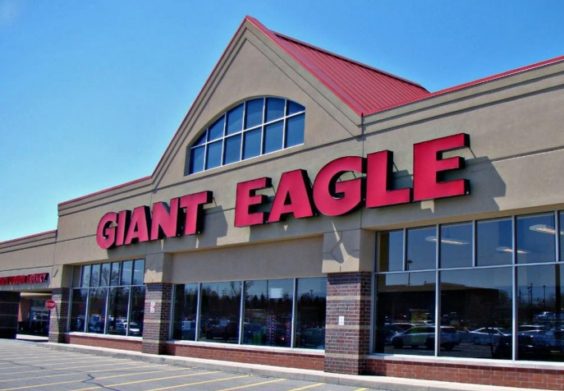
Misusing coupons can be awfully tempting, to some who believe it’s not a big deal and they can easily get away with it. But it’s when they get greedy, that they realize just how big a deal it can be.
That’s what five Ohio grocery cashiers and two of their customers have learned, now that they’ve been indicted in connection with a $156,000 coupon scam. A Cuyahoga County grand jury handed up the criminal indictment yesterday against 46-year-old Leslie Hart, 30-year-old Ashleigh Estell, 22-year-old Rachel Donofrio, 19-year-old Ke’aisha Scruggs and 34-year-old Shawnte Davis, all of them former cashiers at a Giant Eagle store in Bedford, Ohio, along with two customers, 32-year-old Mara Pryor and 36-year-old Roz Hayes.
Their alleged methods are recognizable to those familiar with coupon crime. The indictment accuses Pryor and Hayes, along with “others yet to be identified”, with “filling one or more grocery carts with… baby products, paper goods, personal care items, cleaners, other non-perishable goods, and retail gift cards.” The customers would then allegedly take their carts to one of their favorite cashiers – Hart, Estell, Donofrio, Scruggs or Davis – to check out.
The cashier in question would “scan all items and activate all gift cards for the customer,” the indictment explains, then “take coupons from the customer”. Nothing untoward there. But the coupons were apparently high-value offers that didn’t match what was being purchased, so the register would reject them. No matter, though, because the cashier “would simply override it and apply the coupon anyway. The same ineligible coupon would be scanned and overridden over and over again.”
The majority of transactions involved more than $400 worth of merchandise and gift cards, for which the customers would spend no more than $20 out of pocket. The indictment says this occurred numerous times during the second half of last year, from July through December. Giant Eagle loss prevention reported the suspicious transactions to police back in January, after which the case was presented to the grand jury.
It’s not known what was in it for the cashiers, though cashiers involved in similar scams are often “paid” for their kindness with gift cards and free products from their grateful customers. That’s precisely what occurred in Florida, in a case resolved just weeks ago. Former Winn-Dixie cashiers Princess Tolliver and Syneda Francis were convicted for pushing through stacks of invalid coupons in order to allow certain favored customers to obtain hundreds of dollars worth of merchandise and gift cards for next to nothing. As a token of their appreciation, police said the customers would give their cashiers free and reduced-price groceries and gift cards.
In that case, though, the cashiers were held responsible while the customers were never identified or charged. In the Ohio case, however, Pryor and Hayes are charged alongside their cashiers. According to the indictment, the customers “set up makeshift ‘stores’ to sell much of the stolen product to others.” One of the accused identifies herself online as a “party planner” and offers for sale “gift baskets” filled with personal care items like soaps and lotions.
Altogether, the seven are charged with scamming the store out of more than $156,000.
In a statement, a Giant Eagle spokesman said the retailer is “extremely disappointed by the illegal activities allegedly undertaken by these former team members. These reported actions in no way reflect Giant Eagle’s high ethical standards.”
All seven of the accused are charged with corruption, conspiracy and grand theft. Pryor and Hayes are also charged with money laundering for allegedly selling the “proceeds of (their) unlawful activity.” They’re due to be arraigned in court later this month. If convicted of the most serious charges, they all face between two and eight years in prison.
And the next time a group of shoppers decides to misuse coupons on a grand scale, the store can only hope their cashiers will actually uphold their employer’s “high ethical standards.” Otherwise, attempting to cash in on coupon fraud could prove costly for all involved.
Image source: Giant Eagle










